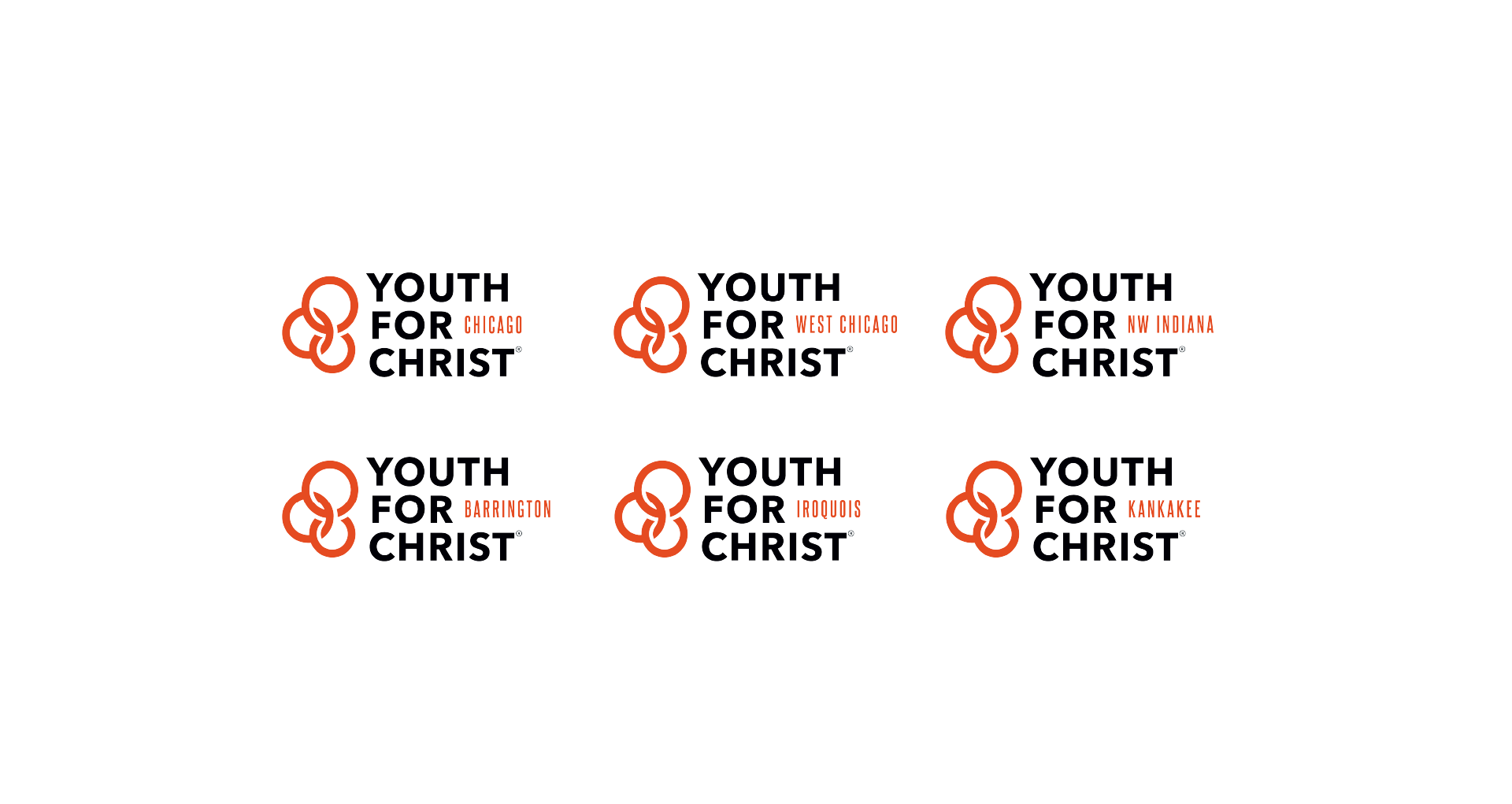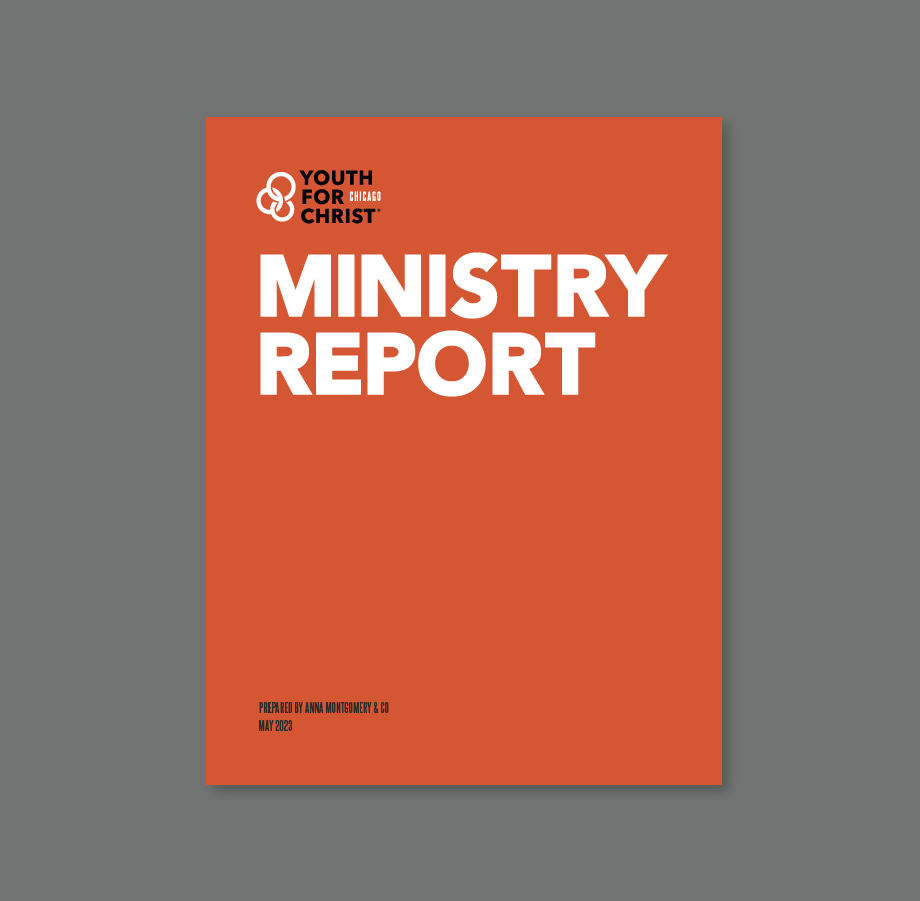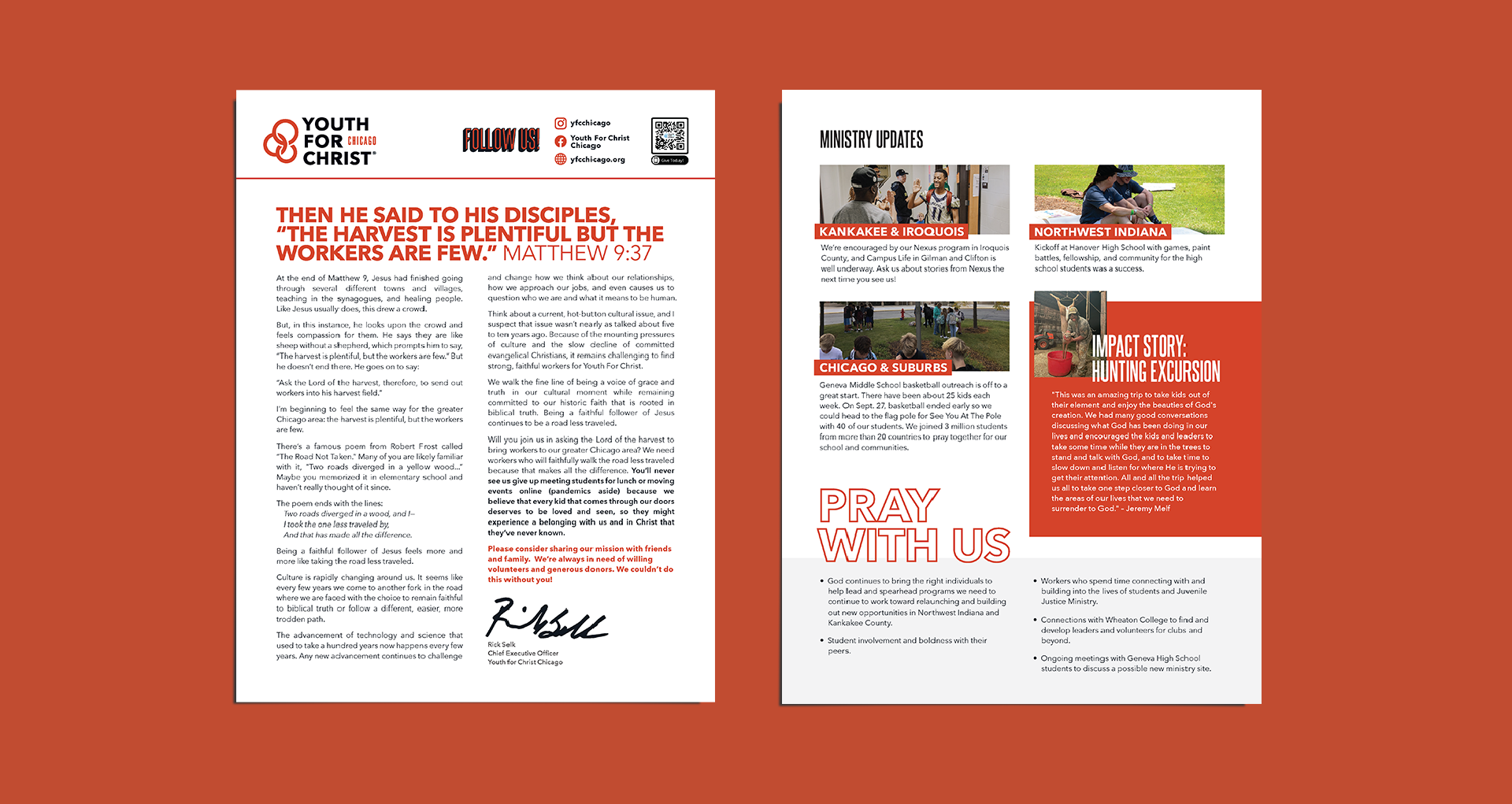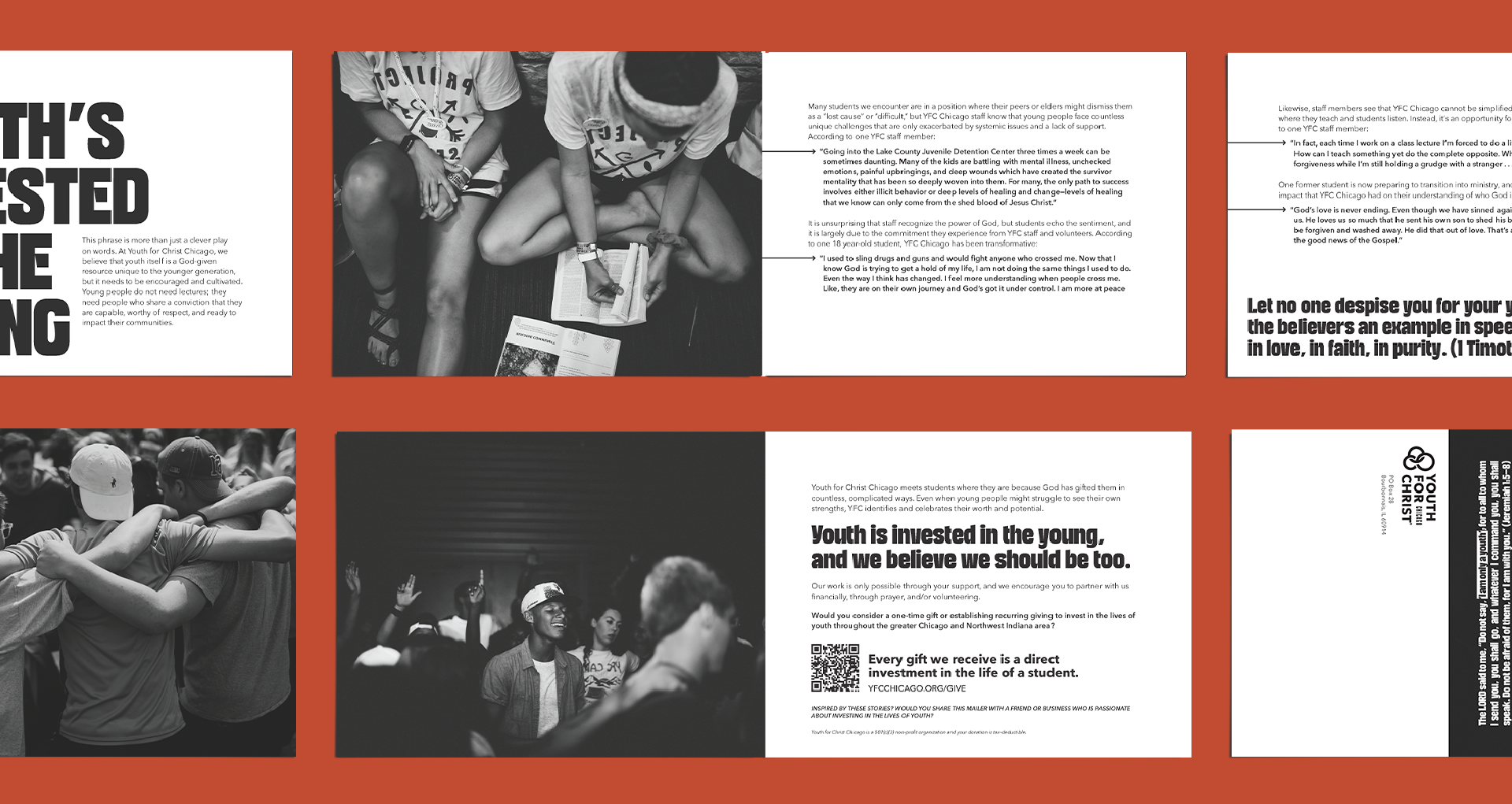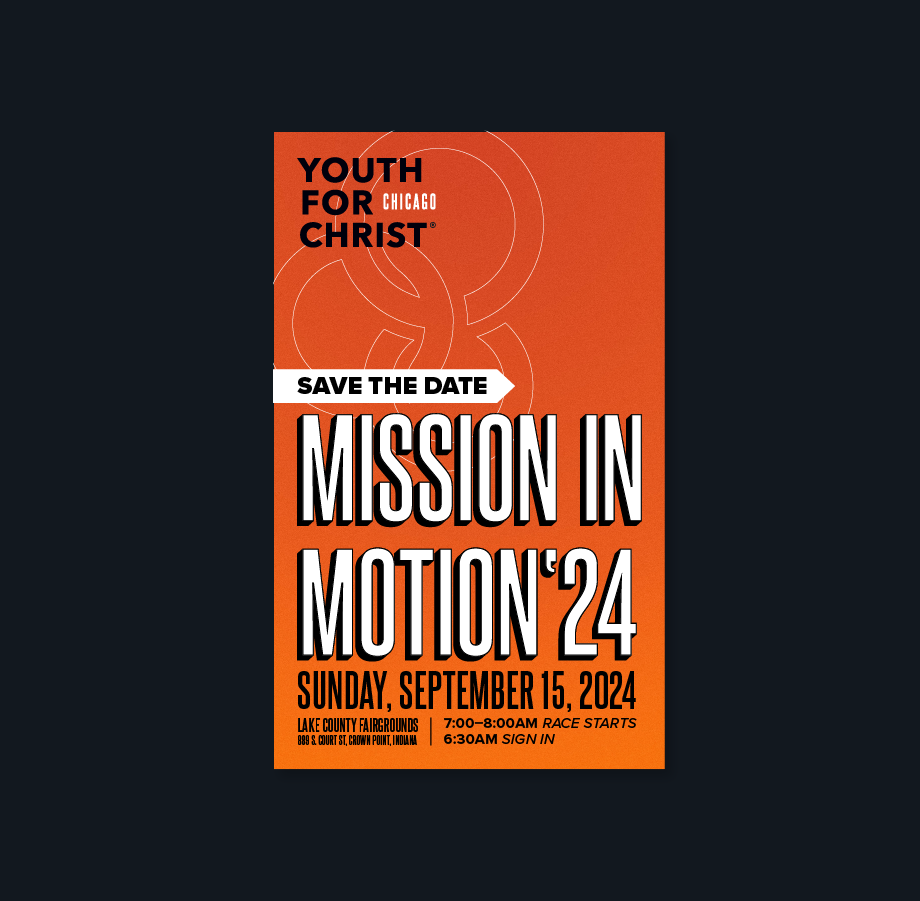Ministries are notoriously difficult to be “practical” about. With a small business, there are budgets and bottom lines that dictate decisions, but there is no corresponding “spiritual economy.” Metrics for success may not always be as pragmatic, so it takes remarkable focus to sustain the work, and communications management may unintentionally take a back seat. If a ministry is to exist at all, there’s a need for grace, persistence, and a willingness to constantly seek balance. For this reason, some ministries give into the temptation to accept the status quo—if it’s not broken, why try to fix it and potentially undo what does work?
When Youth for Christ (YFC) Chicago initially approached us, they wanted to avoid the trap of apathy. There was a lot of good within the organization, which provides ministry support for young people through a variety of channels, including campus and carceral work, but there were also some hurdles that they wanted help overcoming. For starters, if someone didn’t already know about YFC’s work, it wasn’t easy for them to learn more. As such, our initial contract began with two goals in mind—first, to better mobilize their donor base through more effective communications management, and second, to help unify the many sites comprising the regional chapter.
YFC Chicago is a large region, with sites in both Northern Indiana and Illinois. Each of these sites was functioning with relative autonomy, which was a double-edge sword. There were some definite perks: each ministry had developed its own strengths and identity, and the people who were already involved were enthusiastic and committed in their involvement. Unfortunately, this autonomy created a barrier to entry for outsiders looking in. Visitors to the YFC Chicago website were met with multiple different—often conflicting—explanations of the ministry. That meant that if someone was interested in supporting the ministry, whether by participating, donating, or praying, they couldn’t easily find any information about who YFC Chicago actually was.
Our solution was to initiate a deep-dive, investigative audit on everything we could learn about YFC Chicago, its individual sites, and how they fit into the overall mission and vision of the national organization. We used the results to make a robust report on the organization’s health, identifying specific themes and barriers that were limiting YFC’s work. For example, we identified that the organization’s vision was being diffused—rather than distilled—across the individual site channels. This allowed us to offer some practical next steps for solving the problem, such as rethinking the way email was used and approaching the platform more strategically.
Likewise, the ministry was having some challenges with internal communications management between its various sites, but they also found it difficult to pinpoint what wasn’t working. The question was how each site could be supported without compromising the integrity of the ministry’s big-picture goals. In a testament to the organization’s leadership, they didn’t resign themselves to the difficulties or allow them to take root. Instead, they proactively sought help, and their openness allowed us to chart out a plan for connecting with each of the regional site leaders in a series of strategic, open conversations to identify what the future of YFC Chicago could look like. We then created a practical next-steps action plan for the leadership, focusing on ways they could facilitate psychological safety and meaningful space for each of the individual site leaders to share their concerns, frustrations, and ideas for best practices as the organization moved toward better unity. We recognized that these discussions could be vulnerable or volatile without thoughtful care, but YFC leadership was up to the task because they knew their work was worth it.
More tangibly, in our report, we audited all of YFC Chicago’s communications channels, such as their social media and email, and we looked at their analytics to identify what was working well and what needed more work. For each channel, we offered clear and practical next steps, such as sticking to a specific post cadence and maintaining the same message across posts to emphasize the ministry’s core focus.
After the report, YFC Chicago had a clearer picture of the path forward, both internally and externally, but they knew it would take time to adjust their course. For that reason, we acted as interim communications management directors, handling their messaging and emails and giving guidance on how their post-Amenable future could be easy-to-manage, more sustainable, and thematically consistent across all their work.
YFC Chicago was a remarkable client to work with, and we greatly appreciated how they contacted us for extra help, rather than allowing their communication challenges to escalate into crisis. It demonstrates the passion they have for their ministry, but just as importantly, it exhibits the kind of attention they give to everyone involved in it, and we were grateful to see their thoughtful example.
